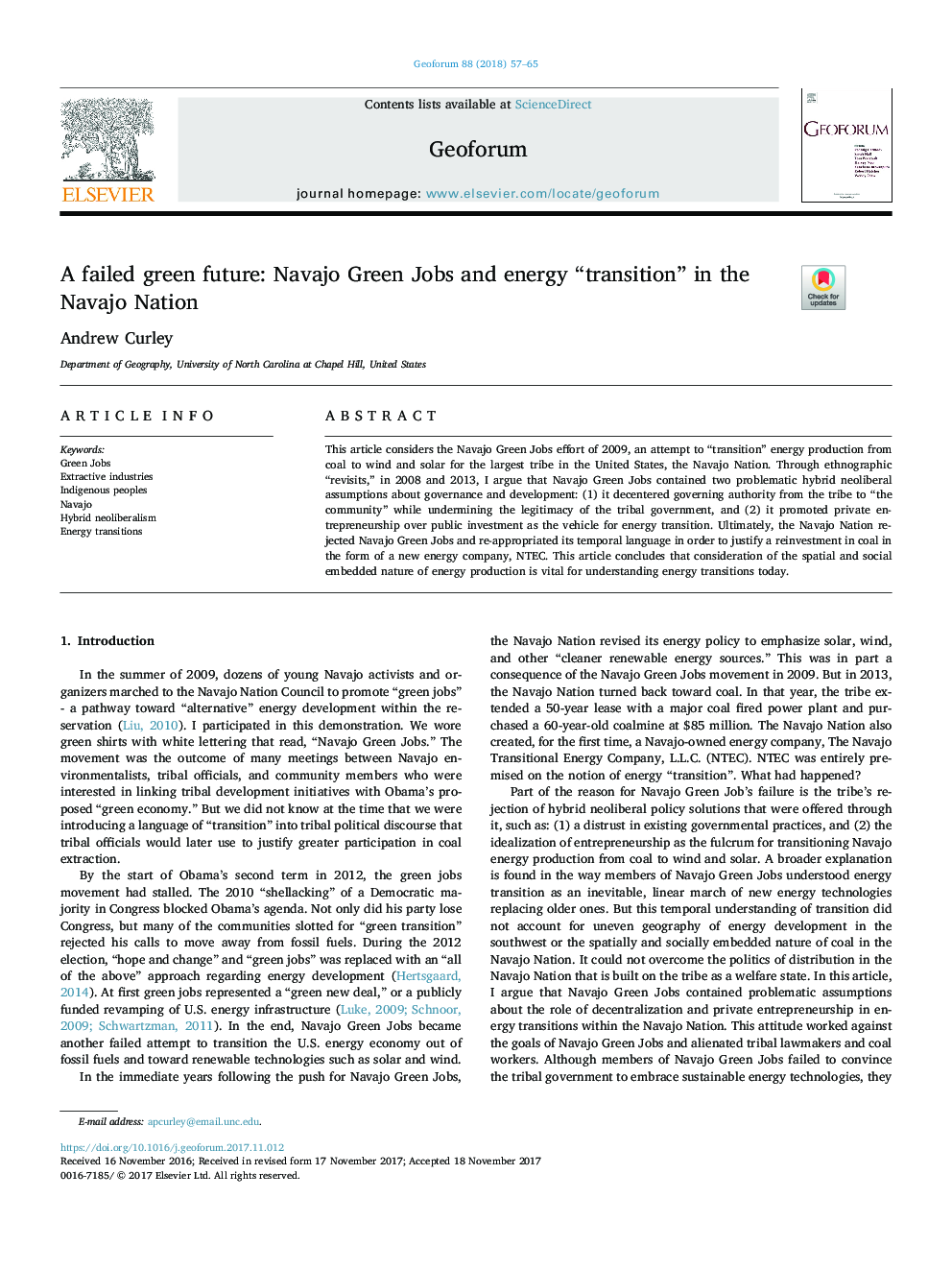| Article ID | Journal | Published Year | Pages | File Type |
|---|---|---|---|---|
| 7353878 | Geoforum | 2018 | 9 Pages |
Abstract
This article considers the Navajo Green Jobs effort of 2009, an attempt to “transition” energy production from coal to wind and solar for the largest tribe in the United States, the Navajo Nation. Through ethnographic “revisits,” in 2008 and 2013, I argue that Navajo Green Jobs contained two problematic hybrid neoliberal assumptions about governance and development: (1) it decentered governing authority from the tribe to “the community” while undermining the legitimacy of the tribal government, and (2) it promoted private entrepreneurship over public investment as the vehicle for energy transition. Ultimately, the Navajo Nation rejected Navajo Green Jobs and re-appropriated its temporal language in order to justify a reinvestment in coal in the form of a new energy company, NTEC. This article concludes that consideration of the spatial and social embedded nature of energy production is vital for understanding energy transitions today.
Related Topics
Social Sciences and Humanities
Economics, Econometrics and Finance
Economics and Econometrics
Authors
Andrew Curley,
